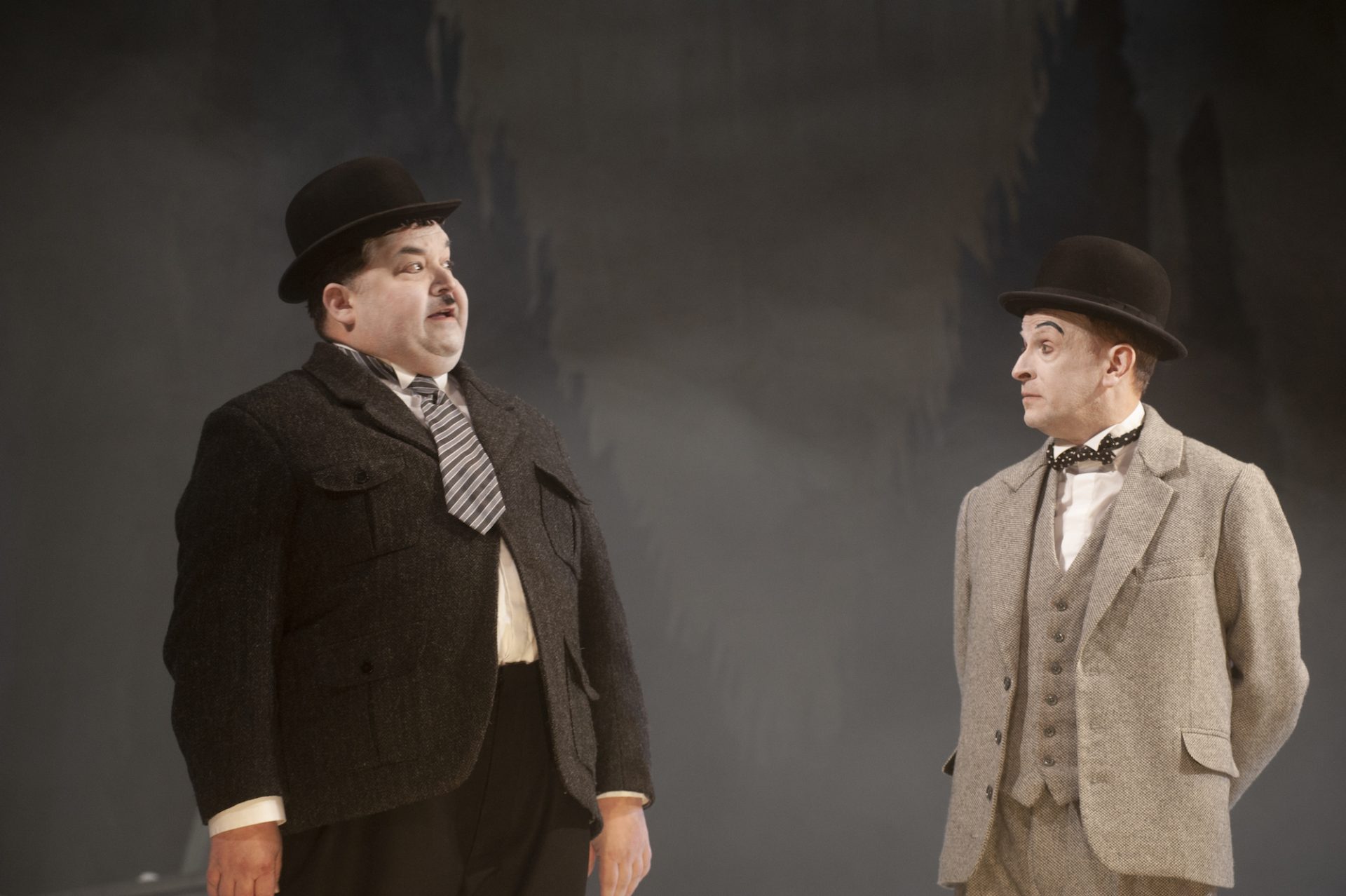Stan Laurel and Oliver Hardy remain titans of cinema and two of the few comedians of the silent film era who successfully transitioned to the talkies. To this day, they continue to be honoured in a multitude of ways with The Lyceum’s production of Tom McGrath’s Laurel & Hardy being just one example. First performed in 2005, the play brings the iconic duo back to the stage in a charming homage to the pair’s career, retelling the story of how they met, their rise to fame, and the tragic end to the career – all told from the horse’s mouth.
Adorned in their classic suits and white face paint amidst grey props and backdrop, Steven McNicoll and Barnaby Power undeniably look the part when they first take to the stage. This feeling continues throughout the performance with their movements and mannerisms perfectly mimicking those of Laurel and Hardy. It’s clear that both actors, with the aid of choreographer Rita Henderson, have spent a great deal of time studying the pair’s idiosyncrasies and the result pays off excellently.
McNicoll and Power both deliver solid performances in a litany of other roles too – Emily Norvell, Hal Roach et al. – but they are still undeniably Laurel and Hardy playing these roles. The presence of Jon Beales on stage as the Pianist adds dividends to the performance as well, providing live music to compliment the actors’ movements in true vaudevillian fashion. He also serves as an additional hand and source of humour while never detracting from the primary focus.
It’s a testament to both the actors on stage and the legacy of Laurel and Hardy that their timeless style of slapstick comedy can still elicit raucous laughter from the audience almost 100 years later. It’s in these moments that Laurel & Hardy is strongest, be it the wonderful recreation of the classic wallpaper sketch or their iconic dance from Way Out West that serves to wrap up proceedings.
What comes between the comedy is genuinely fascinating too, as anyone familiar with the history of Laurel and Hardy will know. There’s an underlying sadness to proceedings through its highlighting of the people left behind on the pair’s meteoric rise to fame, as well as the building issue of Hardy’s health. It’s often difficult to balance comedy and tragedy, but it’s done fabulously here, even if there are times when the performance feels somewhat muddled amidst its Waiting for Godot–esque purgatorial aspects.
That never fully detracts from the overall enjoyment of the evening though. Rather, it remains a heartfelt ode to the pair’s career and legacy.
